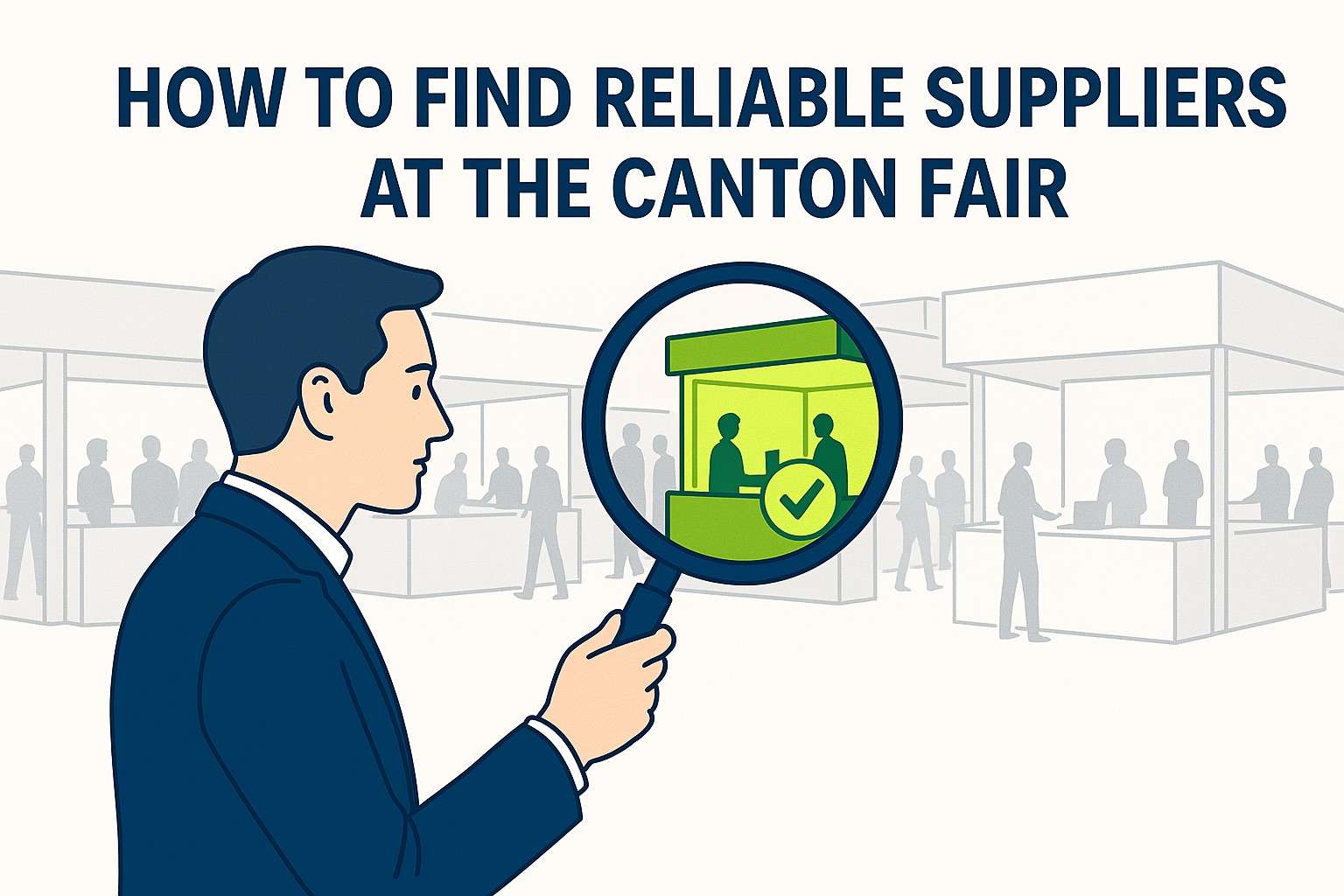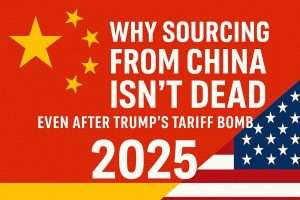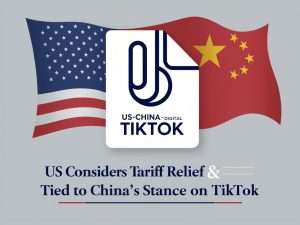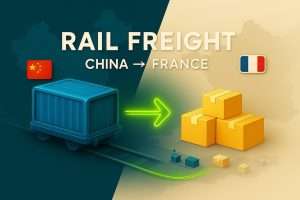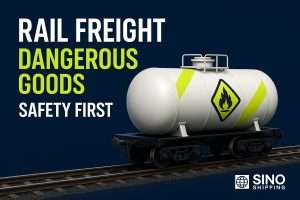We’ve all been there — arriving at the Canton Fair, wide-eyed, excited, and maybe a little overwhelmed. You’re standing in one of the world’s largest trade exhibitions, surrounded by over 25,000 suppliers, and all you can think is: “How do I know who I can actually trust?”
Sourcing at the Canton Fair can be a game-changer for your business — or a costly detour if you choose the wrong partner. The difference often comes down to one thing: your ability to identify reliable suppliers.
In this guide, we’ll walk you through a step-by-step, boots-on-the-ground method to navigate the fair like a pro. No fluff. No theory. Just field-tested strategies that help you ask the right questions, spot red flags early, and build partnerships that last.
Whether it’s your first time in Guangzhou or your tenth, this article will give you the clarity and confidence to make the most out of your sourcing trip — and walk away with real, long-term value.
Let’s dive in.

📅 1. What Is the Canton Fair and Why It Matters for Sourcing
The Canton Fair — officially known as the China Import and Export Fair — is the largest and longest-running trade show in China, held twice a year in Guangzhou since 1957. Spread over three phases, it hosts more than 25,000 exhibitors and attracts over 200,000 international buyers each session. Each phase focuses on different categories, from electronics and machinery to consumer goods, textiles, and medical devices.
What makes the Canton Fair so strategic for sourcing is its unmatched scale and diversity. You get access to thousands of factories, trading companies, and OEM/ODM manufacturers, all under one roof. Unlike online platforms, the fair lets you see, touch, and compare products in real-time, speak face-to-face with suppliers, and negotiate directly. In an industry where trust is everything, the ability to meet your future partners in person is a major competitive advantage.
🧠 2. Before the Fair: How to Prepare Like a Pro

🛠️ a. Define Your Product Criteria
Before stepping into the massive exhibition halls of the Canton Fair, you need to know exactly what you’re looking for — otherwise, you’ll quickly feel lost in a sea of options.
Here’s what to clarify in advance:
- Product specifications: Be precise. What material, size, color, features, and finish do you want? Bring printed spec sheets or drawings.
- MOQ (Minimum Order Quantity): Define the minimum batch you’re willing to order and check whether it fits typical supplier requirements.
- Certifications: Identify what your market requires — CE, FCC, FDA, ISO, etc. — and only engage with suppliers who can prove compliance.
- Target price range: Establish your budget per unit and total — but keep some flexibility for quality variations.
- Order frequency: Will this be a one-time purchase or a recurring deal? Suppliers take long-term buyers more seriously.
Having a clear sourcing checklist in your pocket will help you filter out unsuitable suppliers instantly and keep negotiations focused.
🔍 b. Shortlist Suppliers in Advance
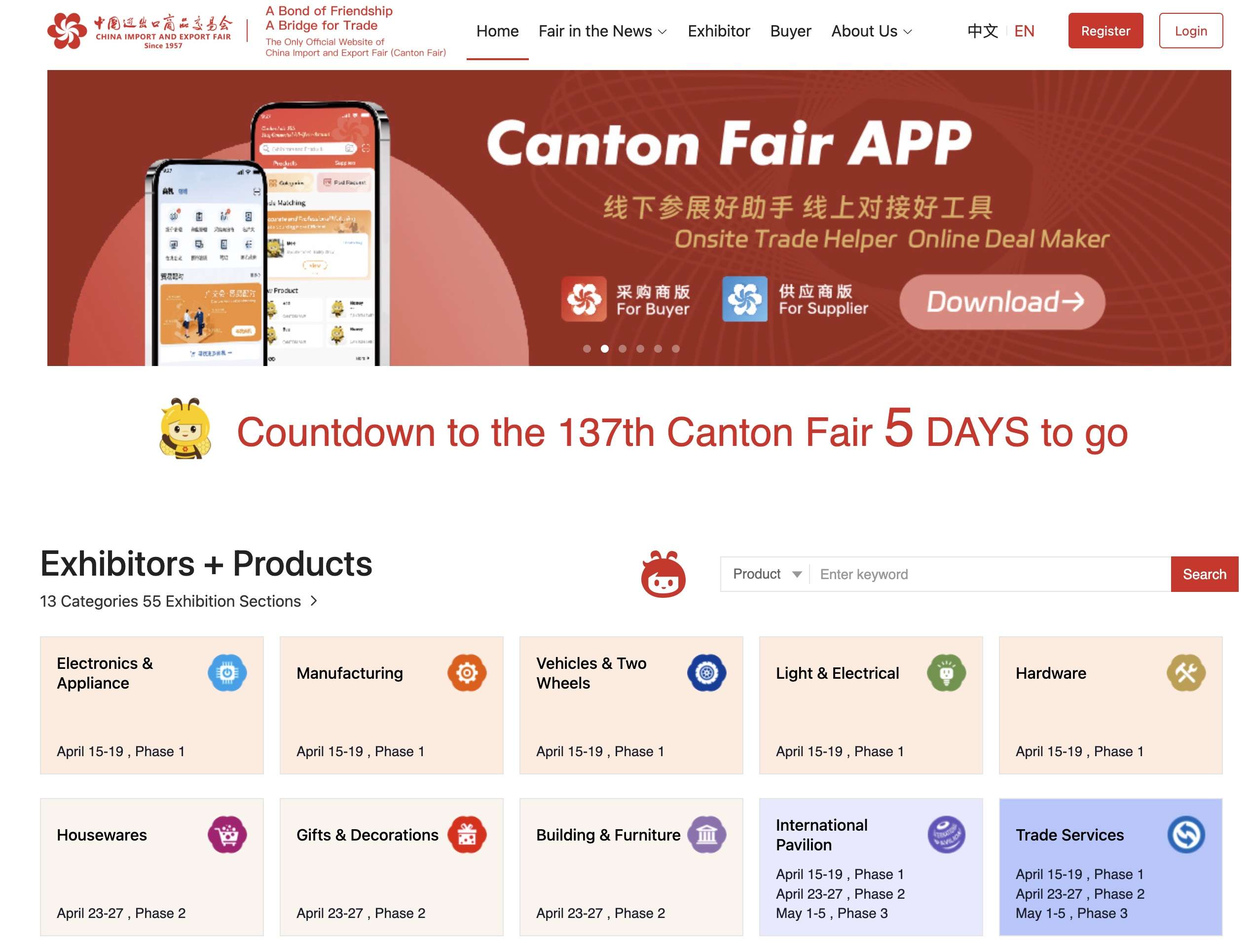
The Canton Fair is organized and searchable — if you plan ahead. Use the official Canton Fair website (cantonfair.org.cn) to:
- Search by product category or keyword
- Filter by booth number, exhibitor name, or region
- Use HS codes to narrow down to your exact product type
- Bookmark your top 20 exhibitors for each product you’re targeting
If you already know what you want, don’t wait until you’re on-site to explore. Email suppliers in advance, introduce your company, and schedule a time to meet at their booth. This shows professionalism and can get you extra attention — or even a pre-arranged product demo.
🧭 Pro tip: Many good suppliers don’t speak perfect English. Preparing your product specs in both English and Chinese (or using a sourcing agent) can make your first contact smoother and more effective.
👀 3. At the Fair: How to Evaluate a Supplier in 15 Minutes
👋 a. First Impressions Matter
In sourcing, the first 30 seconds can tell you a lot.
At the Canton Fair, observe how the supplier presents themselves:
- Is their booth well-organized and professional?
- Are the product displays clean, labeled, and complete?
- Do the staff seem engaged and knowledgeable — or distracted and indifferent?
Reliable manufacturers usually invest in consistency and branding: same booth year after year, clear logos, printed catalogs, QR codes, business cards ready.
Also, check for badges or past participation records — long-term presence at the Fair is often a sign of legitimacy. A “flashy” booth isn’t everything, but sloppiness is often a red flag.
🧾 b. What to Ask the Supplier
Once you sit down (or stand) for a real conversation, go beyond pleasantries. Use a clear, concise question set to qualify them fast.
Here’s a pro-level script with 8 essential questions:
- What is your MOQ (Minimum Order Quantity)?
- What are your standard lead times?
- Do you offer OEM/ODM services?
- What certifications do your products have (CE, FDA, etc.)?
- Who are your current export markets?
- What are your main products or best-sellers?
- How do you manage quality control during production?
- Can I visit your factory, or do you have videos/photos of it?
📌 Write down answers — don’t rely on memory. Then compare suppliers later.
🎁 Bonus: turn this script into a printed checklist or Google Sheet to use across the fair.
🧪 c. Inspect Samples Like a Pro
 You’re allowed — and encouraged — to touch, test, and challenge the samples on display. Don’t be shy.
You’re allowed — and encouraged — to touch, test, and challenge the samples on display. Don’t be shy.
Here’s what to look for:
- Build quality: seams, joints, finishing, materials
- Functionality: does it actually work, or is it a display dummy?
- Packaging: is it ready for retail? Any branding options?
- Attention to detail: labels, user manuals, small parts
- Inconsistencies: if two identical-looking samples feel different — ask why
🚩 Red flags: vague answers like “we just show sample,” excuses about quality “in production,” or lack of documentation. A great product should be shown proudly and transparently.
👂 d. Read Between the Lines
Sometimes, what’s unsaid says more than what’s said.
Pay attention to:
- Response clarity: Are they answering your question directly, or dancing around it?
- Openness: Do they welcome tough questions (MOQ flexibility, inspection, payment terms), or do they push back?
- Consistency: Do their claims match the catalog, the booth branding, and what others say?
Reliable suppliers tend to own their limits (“We don’t do that” = good sign!) while scammers overpromise.
If something feels off — trust your instinct. If something feels right — test and verify. In 15 minutes, you won’t sign a contract, but you’ll know who deserves a second meeting.
📞 4. After the Fair: Vetting and Testing Your Future Supplier
📦 a. Ask for Samples and Perform a Real Test
Meeting a supplier at the Canton Fair is only the beginning. The real vetting happens afterward.
Once you’ve shortlisted potential partners, request product samples — ideally custom or close to your target specs. But don’t just look at the sample. Simulate the full customer experience:
- Track how long it takes to arrive.
- Evaluate communication during the process.
- Inspect packaging, documentation, and labeling.
- Test the product in real-life conditions.
This will show you whether the supplier can deliver consistent quality under real constraints — not just on a trade show floor. Treat this as your first stress test, not your first order.
🚧 Never skip this step, no matter how good the Canton Fair meeting was. Samples reveal more than words ever can.
🕵️ b. Background Checks & Verifications
Before wiring any money or signing a contract, take time to verify the supplier’s legitimacy. Here’s how:
- ✅ Company registration: Ask for their business license (营业执照) and check it against public databases like Qichacha or AIC.gov.cn.
- 📹 Factory evidence: Request photos or videos showing production lines, certifications, warehouse, and staff.
- 📦 B/L Records (Bill of Lading): Some platforms allow you to see if they’ve shipped to real companies internationally.
- 🔍 Third-party inspection: Use trusted services like HaiPlus or HAI International Holding to perform on-site factory audits, quality control checks, or due diligence.
💡 A serious supplier won’t hesitate to provide proof of legitimacy — or will happily accept a third-party audit.
🤝 c. Build the Relationship
 Once trust begins to form, the goal is to nurture a long-term partnership — not just a transaction.
Once trust begins to form, the goal is to nurture a long-term partnership — not just a transaction.
Here’s how to strengthen the relationship:
- Send clear, polite follow-ups after the fair
- Clarify expectations in writing: specs, timelines, penalties, payments
- Start small: place a low-risk test order before scaling
- Show that you’re in it for the long run — suppliers treat serious buyers very differently
🌱 Trust takes time — and reliability is proven, not promised.
A good supplier won’t just meet your first order; they’ll grow with you. And that’s the real value of sourcing right.
🧨 5. Bonus: Avoiding Common Traps & Scams
The Canton Fair is a goldmine — but like any gold rush, it attracts opportunists. While most exhibitors are legitimate, some are middlemen posing as manufacturers, and a few may be outright dishonest.

Here are the most common traps to watch out for:
🚩 1. The “Factory” That’s Actually a Trading Company
They say they own the factory. But when you ask for a factory visit, they stall. When you ask technical questions, they redirect. When you push for OEM customization, they hesitate.
Classic sign: They show dozens of unrelated products — lightbulbs, toys, garden tools — all under one brand.
Why it matters: You’re paying a markup without knowing the real production source or quality controls.
🚩 2. The Too-Good-To-Be-True Price
One booth quotes you $6.80/unit. The next says $3.20 — for the same product. Sounds like a win?
🚨 Red flag: extremely low pricing often hides hidden costs — lower-grade materials, production delays, zero quality checks. And once they receive the deposit, you’re stuck.
👉 Always compare prices across at least 5 suppliers, and ask why a price is lower.
🚩 3. The Vanishing Contact
You met them at the fair. Everything was smooth. Then, after the show… silence. Or worse: someone else emails you from a different address, claiming to be “your new point of contact.”
It could be a hijacked lead or internal mismanagement. Either way, it’s risky.
✅ Rule of thumb: always reconfirm company name, license number, and contact info after the fair via official website or trusted sourcing partner.
💡 The 3 Golden Rules to Stay Safe
- Always verify before you trust — no matter how friendly they seem.
- Never skip the sample and background check — it’s your filter.
- Start small — your first order is not a business win, it’s a test.
⚠️ Mini Case Study: “The €12,000 Lesson”
One of our European clients met a supplier who claimed to make luxury travel bags at unbeatable prices. The samples looked good. They paid a 30% deposit upfront.
Three months later: radio silence. No delivery, no refund. They later discovered the supplier was a “ghost booth” — registered under a temporary name, using a Gmail address, and without any physical factory.
The lesson: What seems fast and cheap can cost you much more than money.
🌟 6. Work With a Trusted Sourcing Agent
Even seasoned importers use sourcing agents — not because they can’t do it themselves, but because they know the cost of mistakes.
A reliable sourcing agent acts as your local expert, translator, negotiator, and watchdog — all in one. When you have someone on the ground who understands your standards and speaks the language (literally and culturally), you reduce risks, save time, and gain leverage.
At HAI International Holding & HaiPlus, we’ve helped hundreds of international buyers:
- ✅ Identify and verify high-quality suppliers at the Canton Fair
- ✅ Negotiate better terms directly with factory owners
- ✅ Organize logistics, inspections, and secure shipping
- ✅ Avoid scams, communication gaps, and costly errors
We are your eyes on the ground. Whether you’re a first-timer or an experienced importer, our bilingual team makes sure you walk into the fair with a plan — and leave with real deals you can trust.
Ready to Find Your Perfect Supplier? Let’s Make It Happen.
The Canton Fair offers a rare opportunity to connect directly with thousands of suppliers — but finding the right one takes more than luck.
Here’s a quick recap of what it takes to source smart:
- Prepare before the fair: Know your specs, your numbers, and your ideal supplier profile.
- Shortlist and schedule: Use the official tools to target the right booths and plan ahead.
- Evaluate on the spot: Ask the right questions, inspect samples like a pro, and watch for red flags.
- Test after the fair: Order samples, run background checks, and always verify before placing orders.
- Avoid shortcuts: Don’t fall for low prices or smooth talk — your future business depends on real reliability.
- Use a sourcing partner: It’s not a weakness — it’s an advantage.
Remember: successful sourcing is part method, part instinct — but always grounded in verification. The Canton Fair can open doors to long-term, high-value partnerships… if you know how to walk through them wisely.
So now the choice is yours. Go it alone, or get a guide who knows the terrain.
👉 Need help navigating the fair like a pro? Book your Canton Fair Assistant today.
Let’s make your trip to Guangzhou the most productive business move you make this year.
💬 Frequently Asked Questions (FAQ)
Do I need an invitation to attend the Canton Fair?
Yes, you need an official invitation letter to attend the Canton Fair. This document is required to apply for a business visa (typically an M visa) and to register for your buyer badge. You can request the invitation directly from the Canton Fair website or through one of your Chinese suppliers. Once you have it, you’ll be able to register online or on-site before entering the exhibition halls.
What’s the MOQ at the Canton Fair?
There’s no fixed MOQ at the Canton Fair — it depends entirely on the supplier and the type of product. Most manufacturers will quote a minimum of 500 to 1,000 units per item, but many are open to negotiating lower quantities for first-time orders or if they have available stock. The key is to ask clearly, explain your goals, and see how flexible the supplier is.
How to avoid scams when sourcing at the Canton Fair?
Scams are rare at the Canton Fair, but they do exist — especially after the show, once contact continues online. To stay safe, make sure to verify the supplier’s company registration, test their products with real samples, and never pay large sums up front without contracts or due diligence. Avoid deals that seem too good to be true, and always communicate through official channels. If you’re unsure, working with a local sourcing agent or inspection service adds a vital layer of protection.
Are Canton Fair suppliers better than Alibaba?
Not necessarily better, but different. The Canton Fair gives you something Alibaba can’t — face-to-face connection. You can touch the products, read body language, and ask complex questions on the spot. Some manufacturers at the fair don’t even list on Alibaba. If your goal is to build long-term partnerships and verify quality firsthand, the Canton Fair offers a deeper level of insight and trust.
Should I work with a sourcing agent in China?
Absolutely — especially if you’re sourcing in volume or aiming for long-term consistency. A good sourcing agent will help you communicate clearly, verify factories, negotiate pricing and terms, and handle the entire process from product development to shipping. Even experienced buyers rely on agents to save time, avoid misunderstandings, and reduce costly mistakes. In a complex market like China, having someone on your side locally is not just helpful — it’s strategic.

